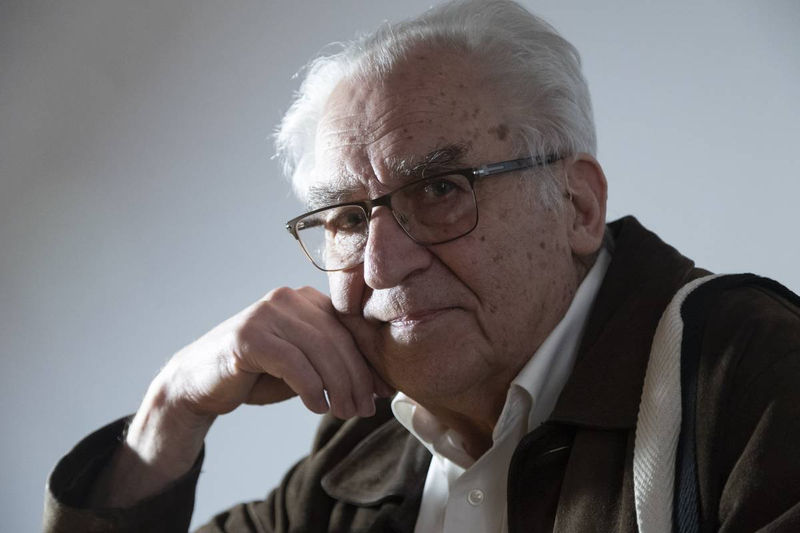Born in Germany in 1937, he grew up in Uruguay, and resides in the United States.
The 29th edition of the Figari Prize had a jury made up of Pilar González, Carolina Porley and Martín Craciun, who unanimously decided to honor the artist, theorist, teacher and polemicist Luis Camnitzer .
“Luis Camnitzer occupies a fundamental place in contemporary Uruguayan art for his ability to unite artistic practice with critical and pedagogical reflection. This jury's decision is based on the certainty that he is a Uruguayan artist with a solid, long, and distinguished career spanning more than six decades, and of great national and international significance. His work, imbued with conceptualism, questions the boundaries between language and image, memory and history, always proposing an active stance against power, violence, and systems of knowledge, as well as new ways of thinking about the relationship between art and politics,” the ruling states.
Camnitzer has lived in the United States since the 1960s, and, as the judges noted, “has maintained a constant connection with the local art scene, not only as an exhibitor, but also as a teacher, essayist, and debater, contributing to artistic development and reflection on the state of the visual arts in the country.” The exhibition corresponding to the award will take place in November.
...
Nacido en Alemania en 1937, creció en Uruguay y reside en Estados Unidos.
La edición XXIX del Premio Figari tuvo a un jurado integrado por Pilar González, Carolina Porley y Martín Craciun, quienes por unanimidad decidieron distinguir al artista, teórico, docente y polemista Luis Camnitzer.
“Luis Camnitzer ocupa un lugar fundamental en el arte contemporáneo nacional por su capacidad de unir la práctica artística con la reflexión crítica y pedagógica. La decisión de este jurado se toma en la certeza de que se trata de un artista uruguayo con una trayectoria sólida, larga y solvente de más de seis décadas, y de gran trascendencia nacional e internacional. Su trabajo, atravesado por el conceptualismo, cuestiona los límites entre lenguaje e imagen, memoria e historia, proponiendo siempre una posición activa frente al poder, la violencia y los sistemas de conocimiento, así como nuevas formas de pensar la relación entre arte y política”, señala el fallo.
Camnitzer está radicado en Estados Unidos desde la década de 1960, y, a su vez, señalan los jurados, “ha estado en permanente relación con el ambiente artístico local, no sólo como expositor, sino como docente, ensayista, polemista, aportando a la formación artística y la reflexión sobre la situación de las artes visuales en el país”. En noviembre se realizará la exposición que corresponde al premio.
...
Read full article at ladiaria.com

